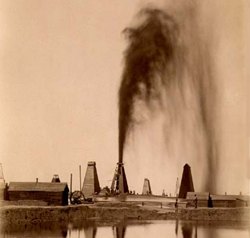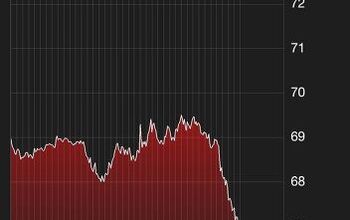The Truth About Oil
Every time there is an oil crisis, four things happen. First, citizens are criticized for their wasteful ways. Second, they are exhorted to conserve our precious, finite resources. Third, alternative fuels take center stage and receive a major cash injection. And fourth, the oil industry finds new ways to find, pump, and refine the liquid gold. Crisis over, everyone goes back to business. Makes sense to me.
It never ceases to amaze me how little Americans learn from history–- or hysteria. History lessons do not draw an audience, though. No media outlet is going to predict life returning to normal when they can release The Day After Tomorrow. By the time the oil crisis is over, some new apocalypse will be taking shape; most people will not even recognize that they were duped into thinking the world is running out of oil.
According to Daniel Yergin, author of "The Prize: The Epic Quest for Oil, Money & Power", society consistently underestimates the impact of technology during times of shortage: 'This is not the first time that the world has 'run out of oil.' It's more like the fifth.' When we started pumping oil out of pockets in the ground, we were only able to get a small percentage of what was there. Today, we recover about a third of the oil in any given find, which still leaves two-thirds in the ground.
At $66 per barrel, it makes a lot more sense to develop and deploy the technology needed to get oil from those hard to reach places. Yergin predicts a massive surge in the ability to produce oil between now and 2010: 'Many of the projects that embody this new capacity were approved in the 2001-03 period.'
History backs him up; over the last 100 years, after a period of oil shortage, market forces converge to create the exact opposite: a market awash in oil. If necessity is the mother of invention, the desire to cash in on $66 per barrel oil is a beloved aunt. New oil acquisition methods, like horizontal drilling and steam injection wells, will result in more oil produced from the same places.
According MIT's Morris Adelman, 'the amount of oil available to the market over the next 25 to 50 years is for all intents and purposes infinite.' Adelman agrees that spiking oil prices stimulate new ways to extract the black stuff. We haven't even begun to exhaust these alternative possibilities. The truth is we still may not do so, for quite some time. Why? Higher prices draw out additional supplies of 'easy oil'. Eventually, supply exceeds the demand, the price goes back down, and alternative extraction technologies cease to be ecomically viable. The fortunes of the shale oil industry illustrate this point perfectly.
A barrel of shale oil costs roughly $40 per barrel to produce. With oil trading at $66 a barrel, the trillion barrels of shale oil in Colorado have, again, become economically attractive. This was also true in the 80's– and then the price of oil from relatively simple well heads sank below the cost of squeezing oil out of rocks. The shale business crashed. This time, hopes run high that new technology will reduce shale oil's production costs. If those costs fall below $30 a barrel, Colorado shale could be a sustainable source of oil for generations.
Okay, the tree-huggers are not completely wrong. Conservation also has advantages. For one thing, it keeps money away from people who do not genuinely care about us (Hugo Chavez, Russia, Wahhabists). Unfortunately, today's eco-friendly cars are hardly worth the effort. Using easy math, at $5.00 a gallon, you have to drive 120,000 miles to make up the difference between the Ford Escape ($20,000, 20mpg) and the Ford Escape Hybrid ($30,000, 30mpg). Today's fad of vegetable-oil engines is likely to go the way of the '80's notions of solar powered cars and parachute pants, but the simple fact that you can buy a mass-produced, environmentally friendlier car at all shows how much progress we have made in the last few decades.
According to Adel al-Jubeir, a Saudi foreign policy advisor, "The world is more likely to run out of uses for oil than Saudi Arabia is going to run out of oil.' I believe him. Of course, a world market brimming with fresh oil may be the Earth Liberation Front's worst nightmare, but it certainly keeps the engine of progress turning. With China and India waking up to the economic possibilities that oil creates, there will be even more incentive to get black stuff into a pipeline than there has been since the Underground Railroad. Where there's a will, there's a well.
More by William Sargant
Latest Car Reviews
Read moreLatest Product Reviews
Read moreRecent Comments
- ToolGuy There was a time when in a place called America there were roads, and they were paved, and they were paved smoothly enough for a vehicle like this. Perhaps our next President will bring back that concept.
- ToolGuy I suppose I will listen before commenting. (TG, what a fair-minded dude!)
- ToolGuy "The technology is much more advanced to be better than a role model driver,”• Do any of you know what a "role model driver" is? No, I guess you wouldn't. 😉
- ToolGuy I might be Batman.
- Lou_BC Well, I'd be impressed if this was in a ZR2. LOL


































Comments
Join the conversation